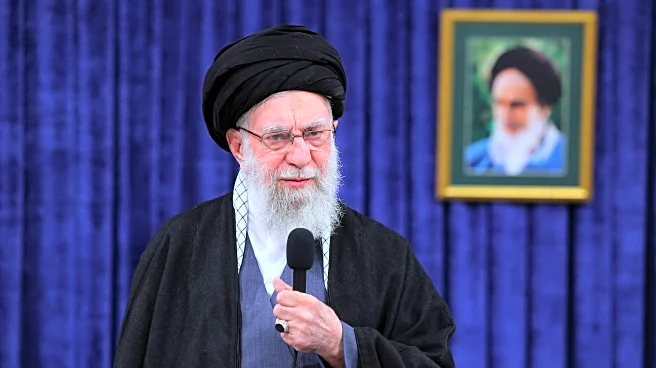What's Happening?
President Donald Trump and Japan's Prime Minister Sanae Takaichi have signed a framework agreement focused on securing the supply of rare earths and critical minerals. This agreement comes as both nations
seek to reduce their reliance on China, which currently dominates the global production of these essential materials. The move is part of a broader strategy to mitigate risks associated with China's export controls, which have previously disrupted supply chains. Japan, which imports approximately 70% of its rare earths from China, experienced significant economic disruption during the 2010 'rare earth shock' when China restricted exports following a diplomatic incident. The new agreement aims to prevent similar vulnerabilities in the future.
Why It's Important?
The agreement between the U.S. and Japan is a strategic effort to diversify the supply chain for rare earths, which are crucial for manufacturing high-tech goods. By reducing dependency on China, both countries aim to enhance their economic security and stability. This development is significant for industries reliant on these materials, such as electronics and defense, which could face supply disruptions if tensions with China escalate. The collaboration also reflects a growing trend among nations to secure critical resources amidst geopolitical uncertainties, potentially leading to new alliances and trade partnerships.
What's Next?
Following the agreement, both the U.S. and Japan are expected to explore further partnerships with other countries to expand their rare earth supply networks. This may involve investments in mining and processing facilities outside of China. Additionally, the agreement could prompt other nations to pursue similar strategies, potentially reshaping global trade dynamics in the rare earths market. Stakeholders in the tech and defense sectors will likely monitor these developments closely, as they could impact production costs and supply chain resilience.
Beyond the Headlines
The agreement highlights the geopolitical significance of rare earths and the potential for resource control to influence international relations. It underscores the need for countries to balance economic interests with national security concerns. The focus on rare earths also raises questions about environmental sustainability and the ethical implications of mining practices, which may become more prominent as countries seek to expand their domestic production capabilities.










